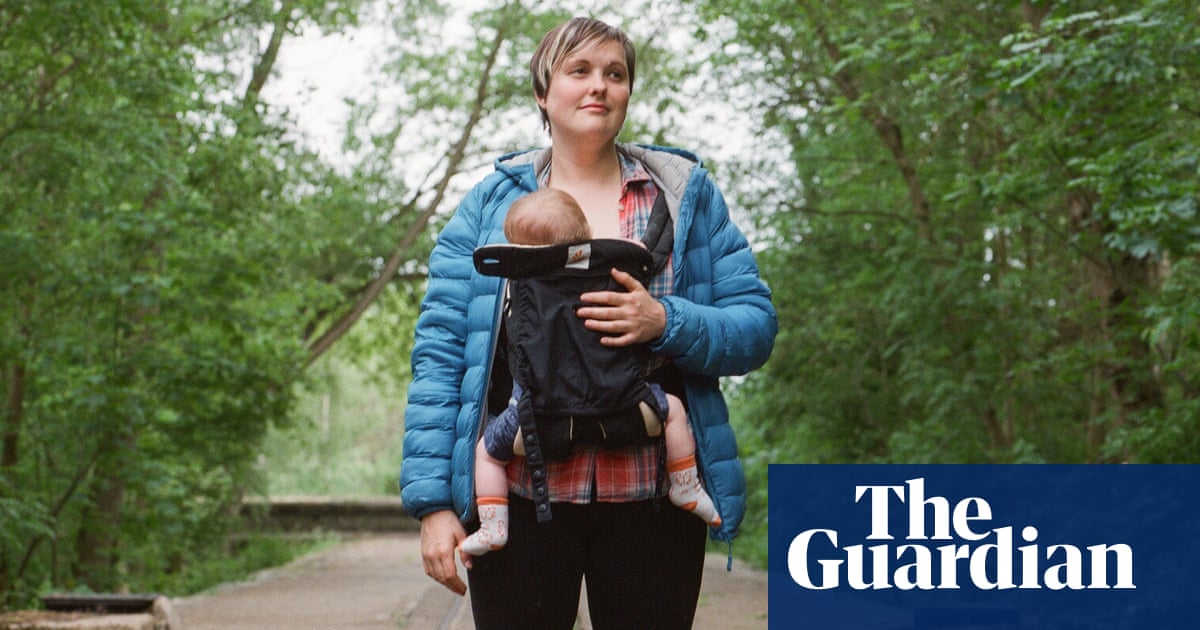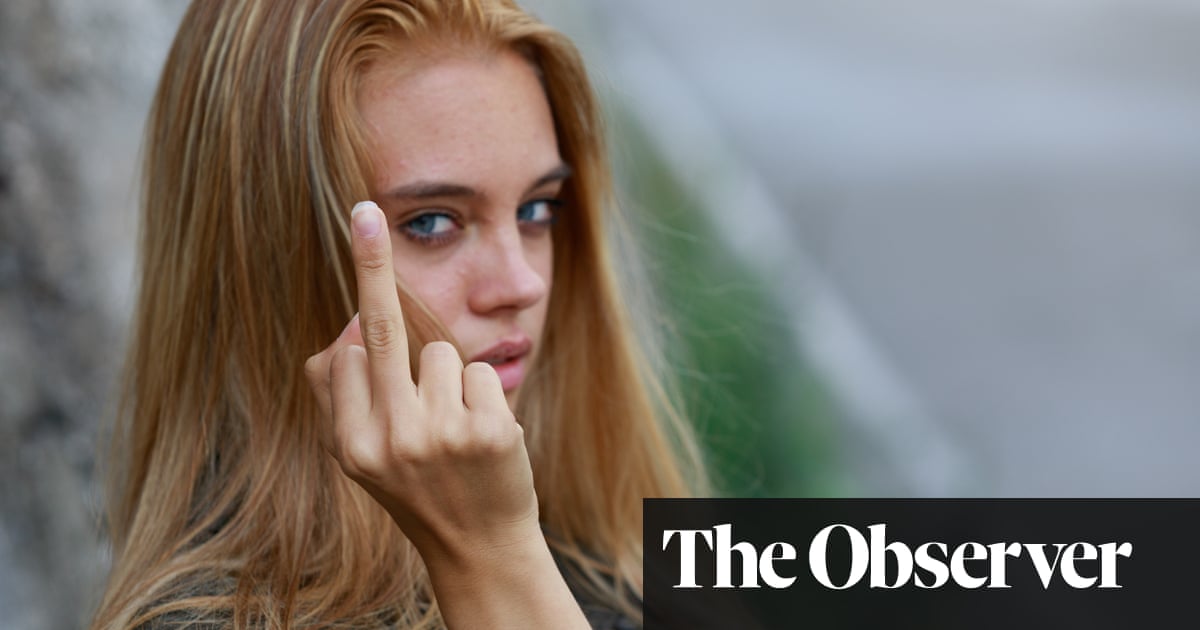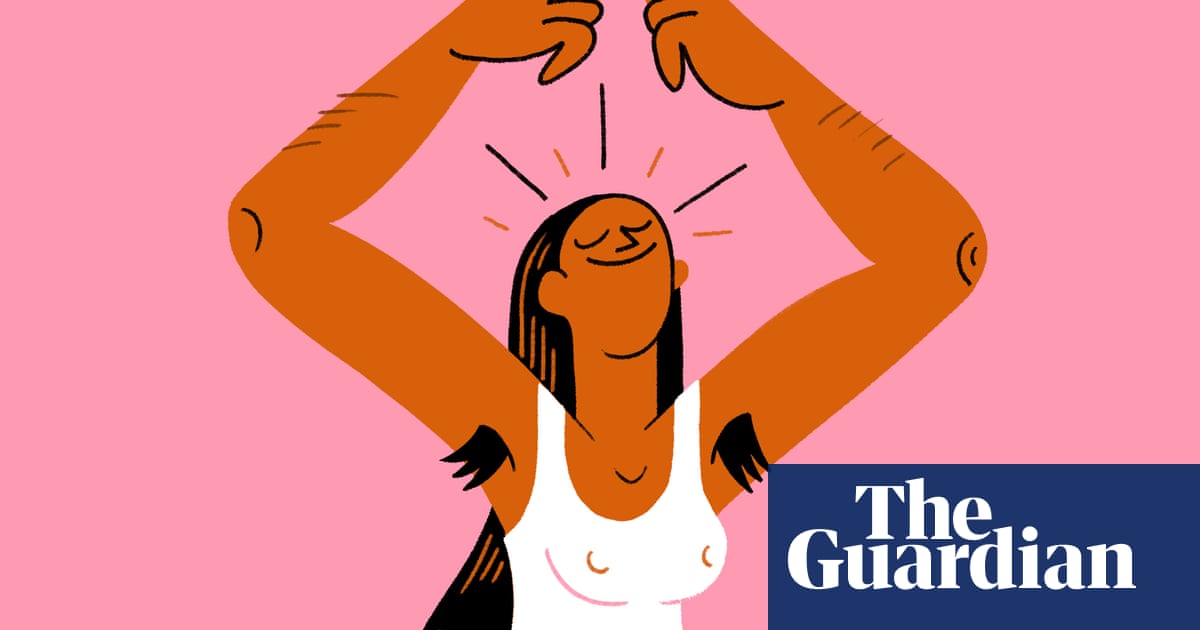
‘Before I had kids, I swam in an ocean of time,” says Josie Long, who has been doing standup since she was a teenager. “I did a lot of touring and was away for long periods. If I wanted, I could write all night. I slept in all the time.” Now she has two children and has just about managed to carve out three days a week for work.
The comedian’s recent shows have featured material about motherhood, including a beautiful account of the birth of her first daughter. “When I started in comedy,” she says, “I was on the sharp end of a lot of sexist stuff. I was told over and over that women’s bodies are disgusting and women’s experiences are niche. So it was wonderfully liberating to do a story about childbirth.”
Finding out you were pregnant was once a mixed blessing for a comedian. Sexism within the industry left some feeling compelled to hide it, get back on stage as soon as possible, and avoid making jokes about motherhood. Jessica Fostekew, who has a seven-year-old son, recalls what things were like when she was pregnant: “It was 50:50 whether a woman in comedy went public about her pregnancy. I watched my elders hide theirs and panic. Then I watched a few brave women smash through that.”
The podcast Funny Mummies gives comedians a space to discuss these issues. It is hosted by Hatty Ashdown, a comic, and Gemma Beagley, a former standup who now works behind the scenes.
“It’s about mums in comedy being open and honest, not feeling like you’ve got to lie or hide that you’ve had kids,” says Ashdown, a mother of two. “I wanted to find out how comedian mums juggle it all.” She believes gigging is not a level playing field, as it is assumed that female comedians are responsible for the childcare. “Male comics are booked over female comics,” she says. “We need more dads saying, ‘I’ve got to sort out a babysitter.’”
When Long became pregnant, she thought: “I don’t feel secure enough in my position in the industry to be having a child. No matter how established you are, nothing is a guarantee. People don’t treat you like they would treat someone in a conventional job. They’d consider you taking nine months off as extreme and unnecessary.”
Long found herself writing material just days after giving birth. Fostekew, meanwhile, felt a “dogged determination” to carry on working as much as ever and now questions her “panic” decision to resume standup after five weeks. “I felt like the relationships with people booking me were so fragile. That was, in hindsight, madness.”
When Fostekew’s son turned one, she had a mini existential crisis. Spending her nights travelling to play comedy clubs and finding last-minute babysitters no longer felt sustainable. She decided to develop standup shows “that are nourishing and rewarding” and to write more for TV and radio. Over a couple of years, she scaled back appearances at club shows and created her award-nominated hour Hench.
Long had a similar refocus: “When I’m on stage, I don’t have any time for bullshit. I have to enjoy it. It’s always felt like my playtime, but now even more so.”
Standup Athena Kugblenu has two children. During her first pregnancy she quickly became “quite strategic” about her career. “At the time I was expecting, I had a few radio credits. You don’t have to leave the house to write, so I made a deliberate decision to do more scripted stuff.” However, the cost of childcare remains “a massive barrier”, Kugblenu says. “A lot of freelancers are struggling.”
Ashdown recently took a second job to help cover costs. On her podcast, she found it refreshing when Holly Walsh, co-creator of BBC series Motherland, was open about hiring a nanny to facilitate her TV work. “Don’t feel bad about getting childcare for the night, because everyone else is getting childcare during the day,” Ashdown says.
“It’s about saying yes to help,” says Fostekew. “I’ve had to get to the point where I’m crying because a job I want has come in and I need one more babysitter.” During her son’s first year, she often took him on the road. This mostly worked, but one experience on a TV advert sticks with her. Her boy was breastfeeding, so had to come to the set. Filming overran and she wasn’t given breastfeeding breaks: “I ended up being there for 16 hours. In one scene, they were filming the back of my head, and I was crying as my tits were streaming milk – because I could hear him crying. I was like, ‘What am I doing?’”
Long also took her children to work. “With my second baby, I did shows with her strapped to me. On the one hand, I love being able to do that. On the other, it’s because we don’t have a support network near us.” Long and her partner, fellow comedian Jonny Donahoe, share parenting equally. She feels lucky to work with “people I know and love”: her producers looked after her baby in Edinburgh while she and Donahoe performed overlapping shows. Both Long and Fostekew have found ways to tour, too, travelling for shorter periods rather than being on the road for weeks.
Parenting can be ridiculous and hilarious, a constant source of new jokes. But there are hazards. “Being a woman in comedy means there’s always an expectation that you’ll just talk about woman-specific things,” says Kugblenu. “I don’t think that’s unique to being a mother.” While many men talk about being dads in their standup, they are rarely accused of being one-note. “The amount of men who go on stage like, ‘I’ve got a one-week-old at home!’ Double standards go hand-in-hand with comedy.”
Some of Ashdown’s podcast guests say it was motherhood that actually moved them to start doing standup. Ashdown wrote parenting material while hosting a comedy show for parents and babies, but evening gigs were different: “I’ve had people not book me because they think I’m just going to do parent stuff. My opinion is: a good joke is a good joke.” She has also grappled with the responsible way to talk about her children on stage. One son recently received a diagnosis of autism and ADHD: “I think I can talk about it, but I’ve got to find a way of respecting him.”
Fostekew’s comedy draws on her own life – she has told her birth story and joked about accidentally sexist stuff that her son has said. “I have half an eye on his privacy,” she says. “He can’t consent to these stories. He was fair game until he was about four – most people should be able to laugh at what an absolute weapon they were up until that point. Anything I’ve written about him in the last year, my parenting is the butt of the joke. That was a conscious change.”
Kugblenu keeps her children’s names private and rarely mentions them on stage. She finds more material in news and politics, but points out: “In 10 years’ time, we’re going to have to show our comedy back to our kids. There are a couple of things that have snuck through, but I’m always seeking to decentre them. That’s quite deliberate. They’re just so precious. One day I might have to mine them, but at the moment they’re in a glass box in case of emergency.”
Long also decided she would never use her children’s names, dubbing them Mrs Baby and Doctor Baby instead. “I love including little bits and bobs but I’m really aware of their privacy, and wanting them to look at it fondly if they ever see it.” Yet her children have hugely influenced the tone of her comedy. “I set an intention to focus more on joyfulness,” she says. “I’ve got to find love for this world and really believe it. This is so twee, but they teach you to fall in love with the world. They remind you to see the world with joy and wonder.”
All four feel it’s easier than ever to talk about motherhood without judgment. As Ashdown launches series three of Funny Mummies, she hopes it will continue to be a forum for honest conversation: “It still happens now where you’re the only woman on the lineup, let alone the only one talking about having kids. It’s really important that we lift each other.”
Kugblenu recently started her own parenting podcast, Why Does My Child Hate Me?, with activist Layla Lawson. They’ve already discussed discipline, potty training and bodily autonomy. “Being a parent is a position of privilege. But that doesn’t mean the process is a bed of roses. It’s important to be honest about that.” This openness, says Long, is a sign of progress. “I love the fact that we’ve broken this taboo. You feel seen when you share experiences together. It’s thrilling.”
Josie Long is on tour until 28 September. Funny Mummies and Why Does My Child Hate Me? are available now. Hench is on Prime Video.












